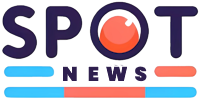
Sensor Market Set to Reach USD 431 Billion by 2030, Growing at a 11% CAGR
According to a comprehensive report by Next Move Strategy Consulting, the global Sensor Market is projected to achieve a market value of USD 431 billion, expanding at an impressive CAGR of 11% by 2030.
This growth of the Sensor Market highlights the increasing demand for sensors across various industries and their pivotal role in modern technological advancements.
Unlock a FREE Sample – Try Before You Buy!
Understanding Sensors: A Cornerstone of Innovation
Sensors, semiconductor devices designed to detect and respond to changes in their surroundings, are integral to a wide range of applications. They measure various physical parameters, including light, heat, moisture, motion, and pressure, and find uses in diverse sectors such as:
- Electronic devices
- Avionics
- Military hardware
- Industrial automation
- Mobile phones
- Medical equipment
- Security systems
- Transportation
- IT infrastructure and communication
Specific sensor types are engineered to meet the unique demands of these applications, further driving their adoption across industries.
Stay Ahead with the Latest News
Market Dynamics and Trends
The global sensor market is witnessing rapid growth, driven by its myriad benefits, such as:
- High current capability
- Long operational life
- Ease of installation
- Increased productivity
- Reduced total cost of ownership
Key Growth Drivers:
- Technological Advancements: The evolution of cutting-edge sensor technologies continues to expand their applications.
- Smart City Development: Governments and organizations globally are investing heavily in smart city initiatives, boosting demand for sensors in urban planning and infrastructure.
- Surge in IoT Technologies: The rapid proliferation of IoT devices is creating a high demand for reliable sensors.
- Rising Smartphone Usage: The growing penetration of smartphones and electronic gadgets further drives the adoption of advanced sensor systems.
Challenges:
Despite the promising growth trajectory, certain factors may impede market expansion. These include:
- Increased Device Costs: Higher sensor integration costs contribute to the overall price of devices.
- Battery Life Reduction: The use of multiple sensors can decrease battery life in portable devices.
Opportunities:
Emerging trends and innovations present opportunities for further growth:
- Wearable Technology: Increasing adoption of wearable devices with embedded sensors is a key growth area.
- Automotive Advancements: Next-generation sensor applications in autonomous vehicles and advanced driver-assistance systems (ADAS).
- Government Initiatives: Supportive policies and investments in sensor technology development globally.
Geographical Insights
Asia-Pacific: The Leading Region
The Asia-Pacific region dominates the global sensor market, fueled by rapid digital transformation in countries like China, Taiwan, and South Korea. Additionally, the region’s thriving healthcare sector is driving demand for sensor-enabled wearable devices.
Europe: Poised for Significant Growth
Europe is expected to register the second-highest CAGR during the forecast period. Investments in advanced infrastructure and sensor manufacturing, particularly in Germany and France, are key growth contributors.
Market Segmentation
The sensor market is segmented based on type, technology, end-users, and geography.
By Type:
- Environmental Sensors
- Pressure Sensors
- Temperature & Humidity Sensors
- Fluid Sensors
- Gas Sensors
- Particulate Matter Sensors
- Motion & Position Sensors (including Magnetic Position, Proximity, Vibration, Speed, Distance, and Linear & Rotary Position Sensors)
- Optical & Imaging Sensors (Optical Sensors, Image Sensors)
- Level & Detection Sensors (Radar Sensors, Level Sensors)
- Biological & Physical Interaction Sensors (Tactile Sensors, Force Torque Sensors)
By Technology:
- Micro-Electro-Mechanical Systems (MEMS)
- Nano-Electro-Mechanical Systems (NEMS)
- Complementary Metal-Oxide-Semiconductor (CMOS)
- Others
By End-Users:
- Automotive
- Electronics
- Aerospace & Defense
- Healthcare
- IT & Telecom
- Agriculture
- Others
By Geography:
- North America: The U.S., Canada, Mexico
- Europe: The UK, Germany, France, Italy, Spain, and other European countries
- Asia-Pacific: China, Japan, India, South Korea, Australia, and others
- Rest of the World: Latin America, the Middle East, and Africa
Key Market Players
Prominent players in the sensor market include:
- Infineon Technologies AG
- Samsung Electronics Co. Ltd.
- NXP Semiconductors NV
- Panasonic Holdings Corporation
- Qualcomm Technologies, Inc.
- STMicroelectronics NV
- Sony Semiconductor Solutions Corporation
- TE Connectivity
- Texas Instruments Incorporated
- Honeywell International Inc.
- Rockwell Automation, Inc.
- Siemens AG
- Omron Corporation
- Amphenol Advanced Sensors
- Emerson Electric Co.
These companies are focusing on technological innovations, strategic partnerships, and mergers & acquisitions to strengthen their market position.
Conclusion
The global sensor market is poised for robust growth, driven by technological advancements and increasing applications across diverse industries. With Asia-Pacific leading the charge and Europe emerging as a significant player, the market offers ample opportunities for businesses and stakeholders.
Source: News Release
